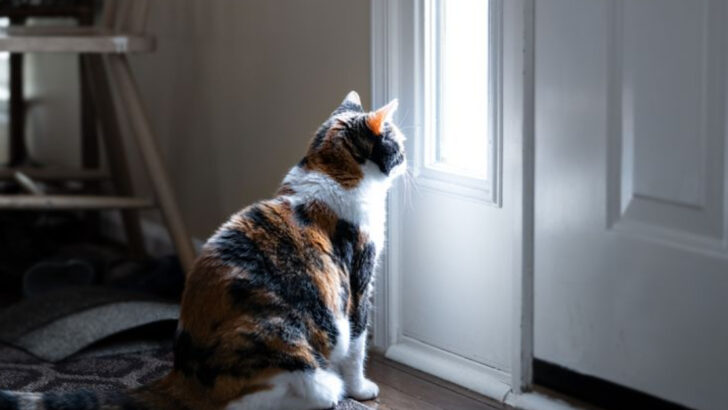Forget everything you’ve heard—your cat might be more loyal than your best friend’s golden retriever.
Yes, the same cat who knocks things off the counter and acts like royalty. Beneath that cool, aloof exterior could be a fiercely loyal companion who’s been quietly choosing you every single day.
Cats don’t do blind devotion. They’re selective. Intentional. Which makes their loyalty all the more powerful when it shows up. From following you room to room to sensing your mood before you do, their signals are subtle—but real.
If you’ve ever wondered whether your cat is just tolerating you or secretly worships the ground you walk on, keep reading. You might be surprised to find out just how deep that bond really goes.
Follows You Everywhere
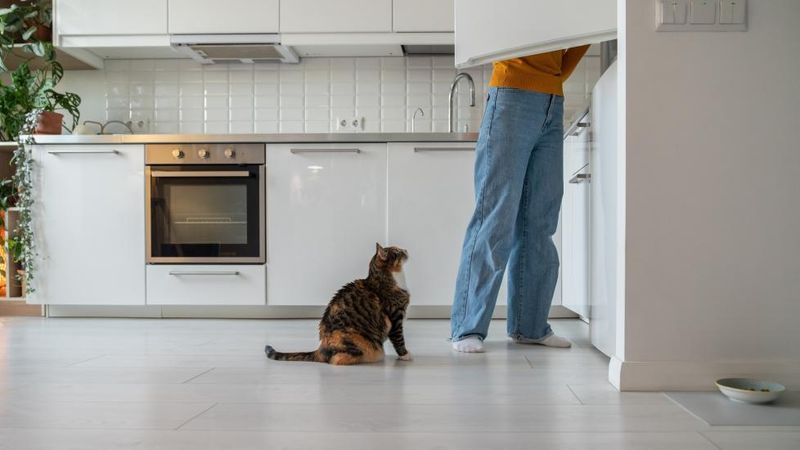
Have you ever noticed that your cat shadows your every move? It doesn’t matter if you’re headed to the kitchen or the bathroom—your feline friend is right there with you.
This constant companionship reflects a deep bond, showing that your cat genuinely seeks your presence. Cats that follow their owners demonstrate an attachment that is not purely food-driven.
They crave your company, indicating an emotional connection that rivals that of many dogs. Such behavior highlights a loyalty not often associated with felines. This attachment is a testament to the trust and affection your cat holds for you.
Greets You at the Door
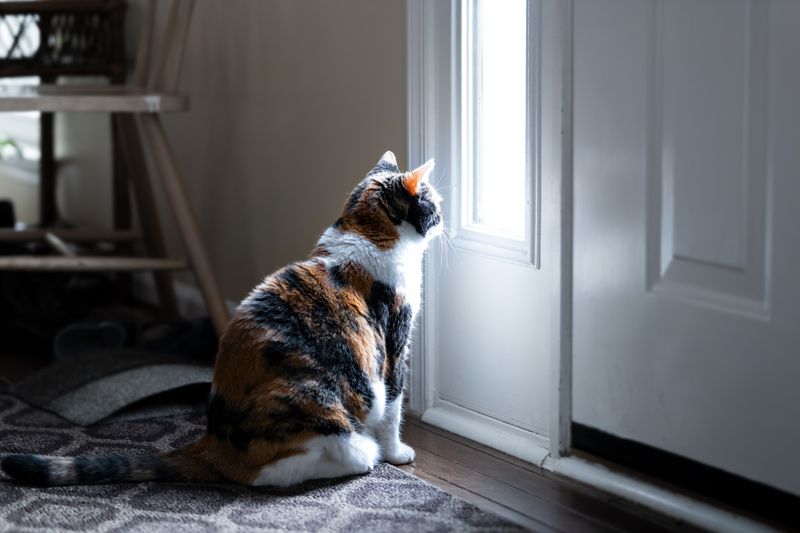
Imagine walking through your front door after a long day, only to be greeted by your cat’s enthusiastic meows. This warm reception is a clear sign of loyalty and affection.
A cat that waits by the door shows anticipation and excitement to see you. Unlike their aloof stereotype, these cats display a genuine interest in your comings and goings.
This behavior showcases a bond that goes beyond mere survival instincts, reflecting a heartfelt attachment. Such a display is a testament to their devotion and desire to be part of your life, much like a faithful canine.
Brings Gifts
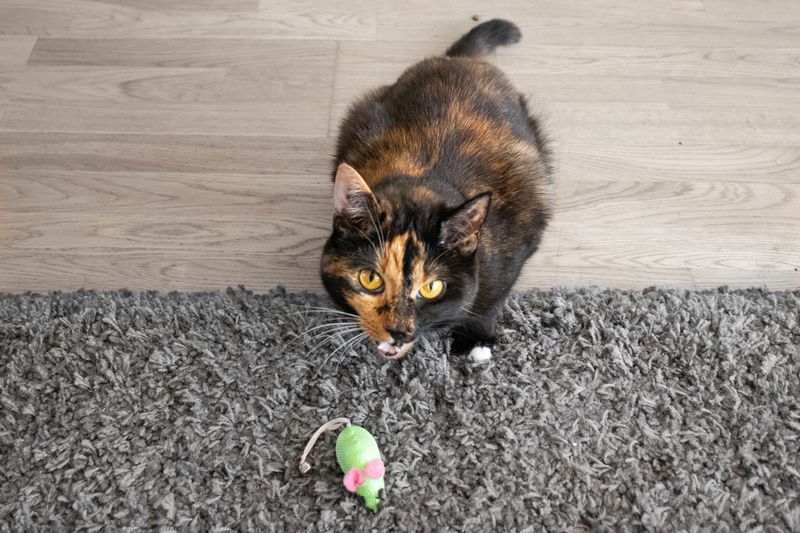
While it might seem odd, when your cat brings you ‘gifts,’ it’s a sign of loyalty and affection. Whether it’s a toy mouse or something less desirable, this gesture is them sharing their ‘catch’ with you.
In the feline world, sharing is caring. Cats view their human companions as part of their family unit. This behavior indicates trust, as they expose their bounty.
By offering you their prized possessions, they’re inviting you into their world. It’s a unique and touching display of loyalty, illustrating how they see you as an integral part of their life.
Comforts You When Sad
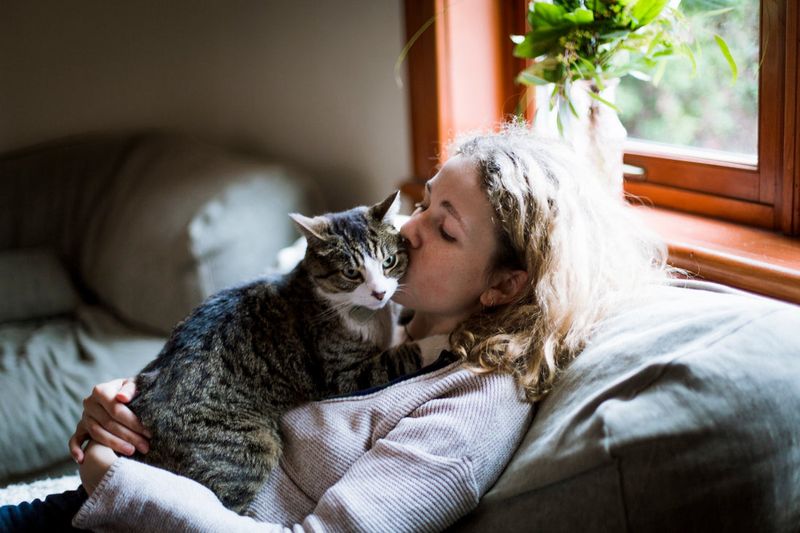
Cats are often perceived as aloof, yet many will offer quiet support when sensing your sadness. Their innate ability to detect moods makes them attentive companions. They may curl up beside you, softly purring to offer comfort.
This empathetic behavior showcases a profound loyalty, akin to that of therapy animals. Their presence can be incredibly soothing, providing a sense of calm and understanding.
Such actions reflect a deep bond, where your emotional state is mirrored in their reactions. Unlike popular belief, cats can be deeply in tune with their human’s emotions, displaying heartfelt loyalty.
Protective of Territory
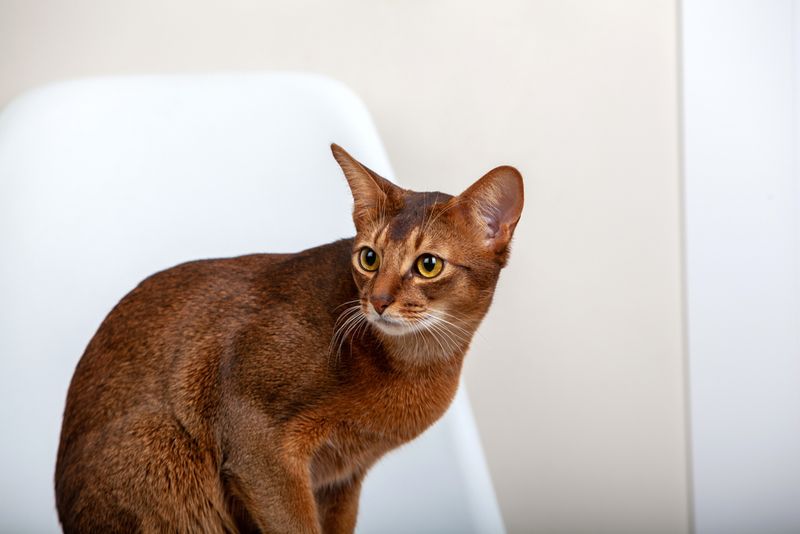
Though small, many cats display a fierce protective instinct, particularly over their human’s space. This behavior mirrors that of loyal guard dogs. They may hiss or growl at strangers approaching their home, showcasing their protective side.
Despite their size, they bravely defend their territory, including you. This self-assigned duty demonstrates their commitment to your safety and well-being. Such vigilance is not merely territorial but also shows a strong loyalty to their human.
They see themselves as your protector, a role they take seriously. This trait is a testament to their devotion and fierce loyalty.
Seeks Your Approval
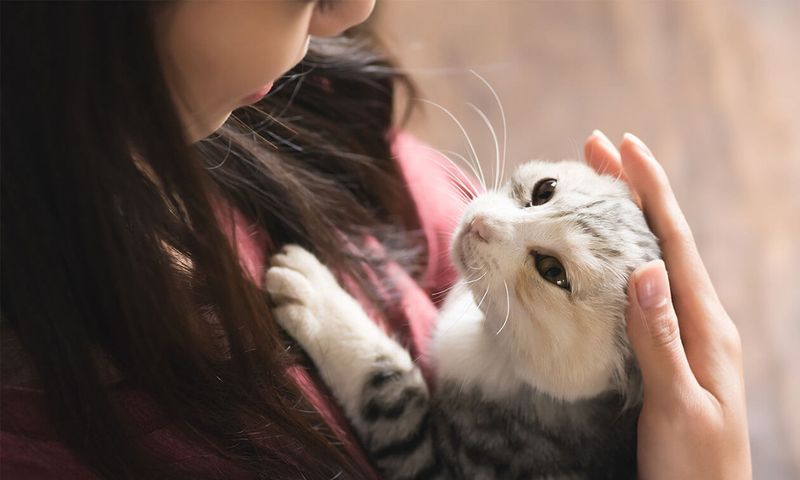
Cats often seek their owner’s approval through subtle gestures, such as bringing a toy or performing a little trick. They look for affirmation, similar to how a dog seeks praise.
This desire for approval illustrates a bond of loyalty, wanting to please their human companion. They value your opinion and respond positively to your attention.
Such behavior showcases their connection with you, indicating a depth of loyalty that is often overlooked in cats. They thrive on positive interaction and approval, reinforcing their bond with you. This need for affirmation reflects a loyal and loving relationship.
Prefers Your Company
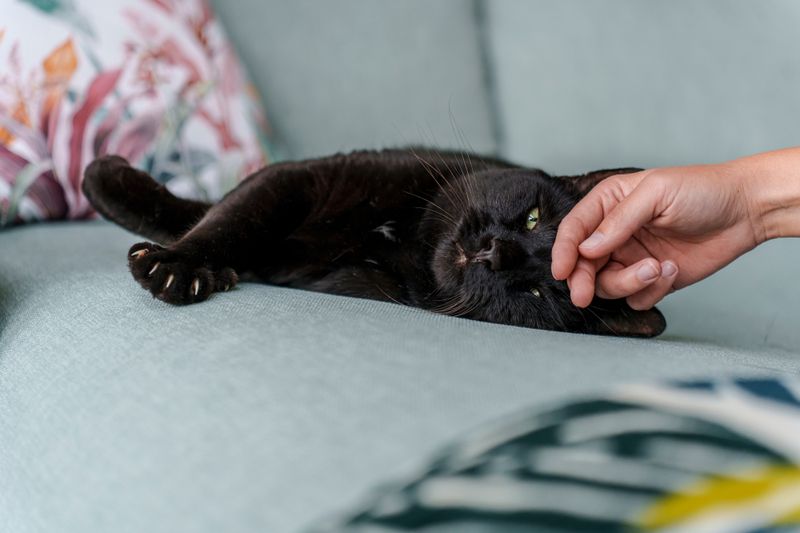
Contrary to their independent reputation, many cats prefer the company of their human companions over being alone. They choose to sit beside you or follow you around the house, enjoying your presence.
This preference indicates a bond that transcends mere convenience. It’s a sign of loyalty when they seek you out, valuing your companionship over solitude.
Such behavior reflects an emotional attachment and trust, marking a loyal relationship. When your cat consistently seeks you out, it demonstrates a preference for your company, a testament to their affection and devotion.
Learns Your Habits
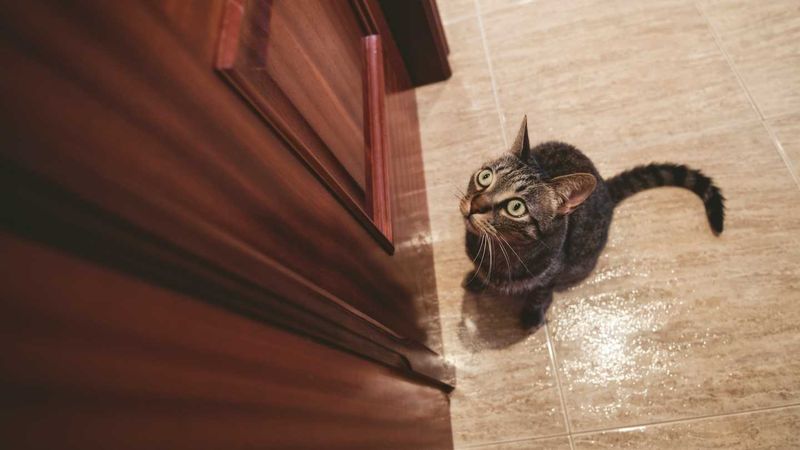
Cats are keen observers, often learning and adapting to their owner’s habits. They may anticipate your schedule, waiting by the door when it’s time for your return or acknowledging your daily routines.
This understanding showcases their intelligence and loyalty, as they align their behavior with yours. By learning your habits, they demonstrate a desire to integrate into your life.
This attention to detail reflects a bond and loyalty that mirrors the connection between close companions. Their ability to adapt and respond to your lifestyle is a sign of their commitment to your relationship.
Communicates with You
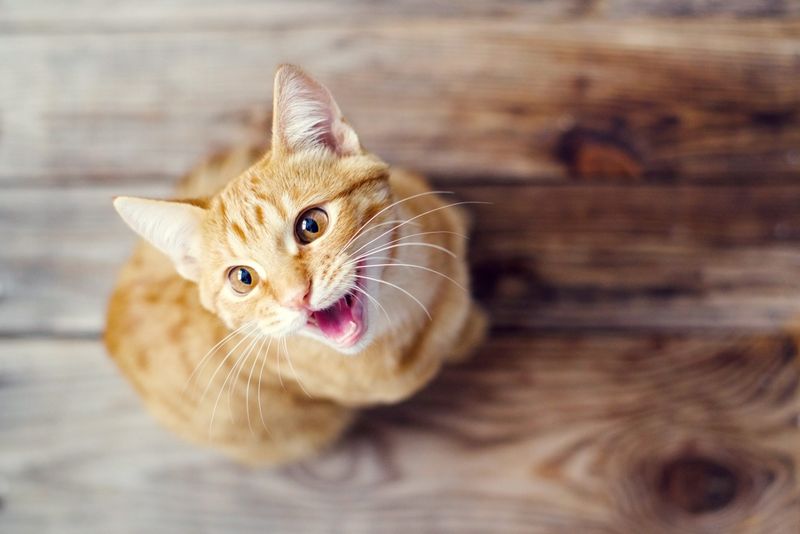
Cats communicate in subtle yet significant ways. Whether through a meow, purr, or particular body language, they let you know their needs and feelings. This communication reflects a level of loyalty, trying to engage and connect with you.
Understanding these signals strengthens your bond, revealing a relationship built on trust and loyalty. They adapt their communication style to resonate with you, showcasing a willingness to maintain a connection.
This interaction goes beyond basic needs, illustrating a desire for interaction and understanding. Such communication reveals a depth of loyalty and partnership with their human.
Recognizes Your Voice
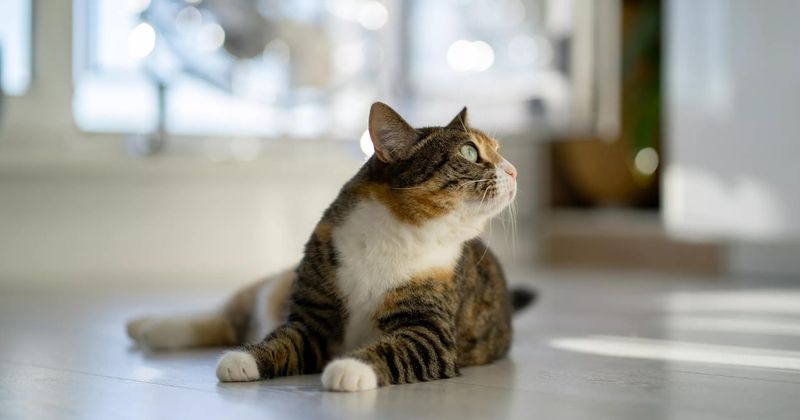
Cats may appear indifferent, but they often recognize and respond to their owner’s voice. This ability to discern your voice from others is a sign of loyalty and recognition.
When they respond to your call, it shows they acknowledge you as part of their environment. This recognition signifies trust and familiarity, hallmarks of a loyal relationship.
Their response to your voice indicates their awareness and connection with you. It’s an endearing trait that highlights a bond often underestimated in feline companions. Recognizing your voice and reacting to it underscores their loyalty and affection.
Stays Close During Illness
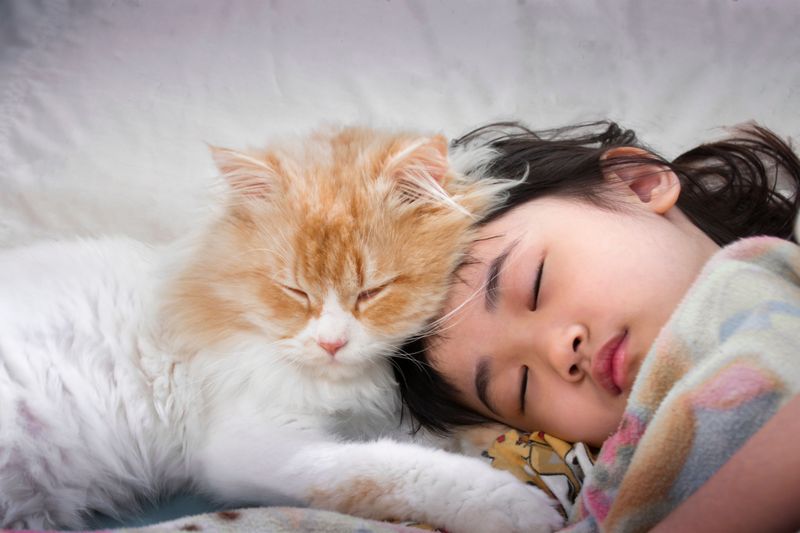
When you’re feeling under the weather, you might find your cat sticking closer than usual. This proximity during illness shows their keen sense of empathy and concern.
They often provide silent companionship, acting as a comforting presence. This behavior indicates a profound loyalty, remaining by your side when you need support the most. Their intuitive nature allows them to offer comfort, showcasing a bond that transcends simple companionship.
Such actions reflect a deep-seated loyalty, as they choose to stay with you when you’re vulnerable. Their presence is a testament to their unwavering devotion.
Adapts to Your Mood
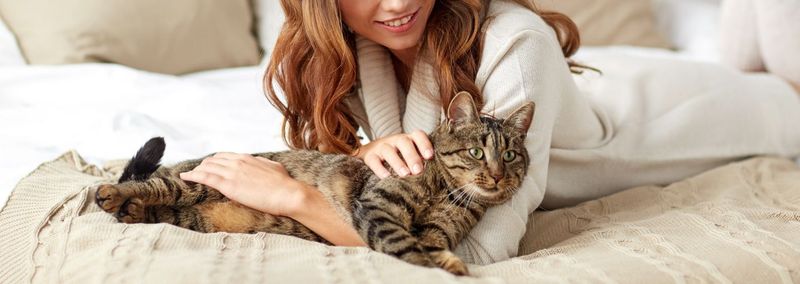
Cats have a unique ability to sense and adapt to their owner’s mood. If you’re joyful, they might become more playful; if you’re stressed, they might offer quiet companionship.
This adaptability showcases their empathetic nature and loyalty. They adjust their behavior to suit your emotional state, demonstrating a deep connection. Such sensitivity is a sign of their commitment to your well-being.
Their presence becomes a source of comfort, reflecting a loyal relationship built on understanding. This emotional intelligence highlights their capacity for empathy and loyalty, qualities often associated with more traditionally loyal animals.

